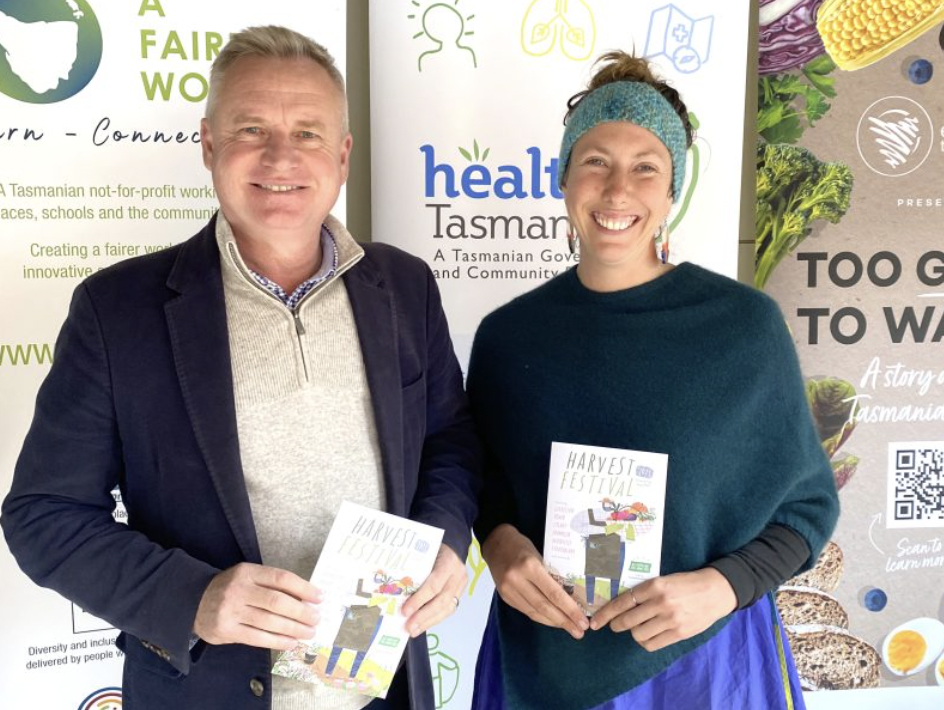Heartland: A Regenerative Farm School Program - Huon Valley, Tasmania (2023 – 2025)
Project Initiator & Co-Designer
Delivery Partners:
Local public primary schools in the Huon Valley
Cygnet Seed Library
Nadia Danti (permaculture educator)
Milkwood Permaculture
Funding: $56,500 grant secured through Healthy Tasmania for a two-year pilot, strategically invested to generate hands-on regenerative food literacy and lasting community impact.
Program Overview
The Heartland Program will enable all public primary schools in the Huon Valley to have a thriving regenerative school farm, nourishing kitchen, and access to locally grown produce and seeds. The model was inspired by community and school interest and designed to build on the successful Farmgate Blitz project within the Huon Valley Food Hub.
Learning Structure
Seed to Seed – Students grow plants from seed to seed, learning full plant lifecycles and resilient agricultural skills.
Compost to Compost – Students develop soil fertility and reduce waste by composting school and garden organic matter.
Goals & Impact
Hands-on learning experiences with local regenerative farming educators
Strengthened food literacy, ecological education, and youth engagement
Increased community resilience and support for vulnerable populations
Creation of publicly available resources for replication across other schools
Timeline
Commencement: July 2023
Conclusion: Late 2024/25
Significance
This pilot program demonstrates the value of redirecting public funds into tangible community outcomes, prioritising learning, ecological stewardship, and local food culture over abstracted reports or consultancy projects. The initiative strengthens school-community connections, fosters a generation of informed, empowered learners, and creates a replicable model for regenerative school farms.
Media coverage: Premier Jeremy Rockliff with Emily Samuels-Ballantyne
Policy Innovation Potential: National “Regenerative School Garden Program”
Goal: Scale the Brentwood model across all Australian secondary schools to embed ecological literacy, regenerative practices, and local food systems knowledge.
Scope & Funding:
Target: 3,700 secondary schools (public & private)
Funding per school: $55,000 over 2 years (covers garden establishment, curriculum integration, compost/seed programs, teacher facilitation, student leadership initiatives)
Total National Investment:
Per 2-year cohort: 3,700 schools × $55,000 = $203.5 million AUD
Over 10 years (5 cohorts): 5 × $203.5 million = $1.0175 billion AUD
Program Elements:
Seed to Seed: Follow plants through full lifecycles; establish school seed libraries.
Compost to Compost: Hands-on waste reduction and soil fertility programs.
Community to Community: Farm-school blitzes, compost clubs, crop swaps, harvest celebrations, and local food engagement.
Curriculum Integration: Gardens tied into biology, environmental science, design, and food technology.
Capacity Building: Teacher and student leadership training for autonomous garden management.
Outcomes:
National network of regenerative school gardens connected to local food systems.
Practical ecological literacy embedded in education.
Strengthened community resilience and student leadership in sustainability.
Replicable model for local government investment in practical, place-based programs.
Funding Rationale:
$55k per school is cost-effective relative to educational, social, and ecological outcomes (based on the Heartland project in the Huon Valley, Tasmania). Redirecting education, local government, and community development resources toward grounded practices rather than abstraction ensures measurable, long-term impact for students, communities, and local economies.

